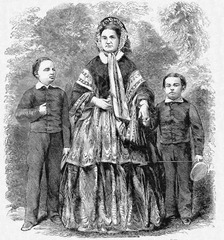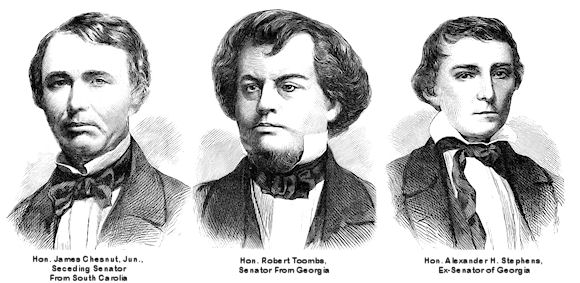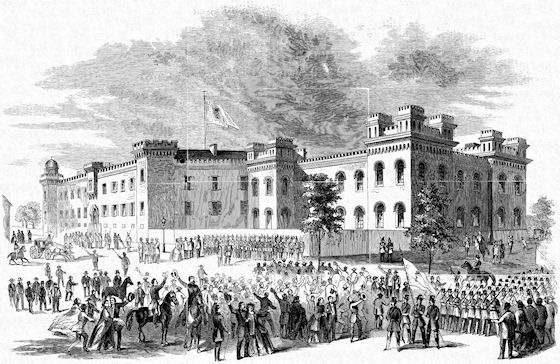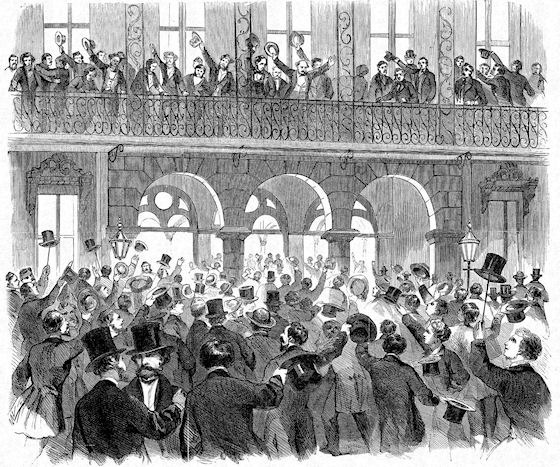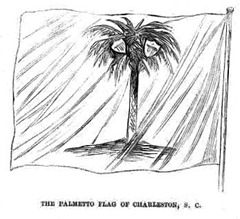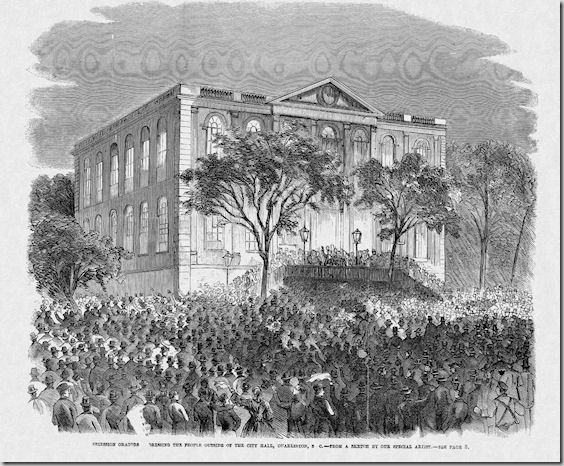We publish in our present number the portraits of three of the leading spirits in the Secession movement in the South.
James Chesnut, Jun., of South Carolina.
Jas. Chesnut, Jr. Senator from Camden, S.C., was, we believe, the first who resigned his seat in obedience to what he deemed the call of honor and duty. His term of office does not expire until the year 1865.
Robert Toombs, of Georgia.
Robert Toombs, of Washington, Wilkes county, Georgia, has been for many years before the people in a public capacity. First in the Creek war, where he distinguished himself; afterwards in the Legislature of his State, and then from 1845 to 1853 in the House of Representatives. He was then elected to fill a vacancy in the United States Senate, and was re-elected at the expiration of the term. He only awaits the action of his State before resigning his seat; he is actuated by the same principles as Senator Chesnut, but less precipitate. He present term does not expire until 1865.
Alexander H. Stephens, of Georgia.
While the whole country is echoing with rumors and cries of secession, there is one man bold enough to stand forward and, in the height of a popular political excitement almost unprecedented, speak soothing words of peace, and endeavor, by all the power of his eloquence and all the weight of of his position, to throw oil upon the troubled waters, that discontent may vanish and harmony prevail. It is no common man who thus endeavors to stem the tide of public opinion, and takes the unpopular side at a moment when the ultra man is almost deified by the enthusiastic many. Alexander H. Stephens is the statesman who assumed this position, a position which cannot fail to have its weight with the thinking and wealthy men of the South. Mr. Stephens was invited to speak in the House of Representatives of Georgia, on Wednesday evening, the 14th inst. After reviewing the position of the country, he said – “The first question that presents itself is, shall the people of the South secede from the Union in consequence of the election of Mr. Lincoln to the Presidency of the United States? My countrymen, I tell you frankly, candidly and earnestly of no man, constitutionally chosen to that high office, is sufficient cause for any State to separate from the Union. It ought to stand by and aid still in maintaining the constitution of the country. To make a point of resistance to the government – to withdraw from it because a man has been constitutionally elected – puts us in the wrong. We are pledged to maintain the constitution.”
He was decidedly in favor of remaining in the Union for strong and cogent reasons; he showed the strong opposing power to the coming President in the Senate, and also that the majority in the House of Representatives was against him, deducing from these facts that it was manifestly the interest of the South not to secede, but to fight the constitutional fight for the maintenance of their right in the National Legislative Halls. His speech throughout was eminently patriotic and practical, and frequently during the delivery and at the close Mr. Stephens was greeted with loud and enthusiastic cheering. We do not doubt Mr. Stephens’ speech in the Legislative Halls of Georgia will have a most soothing and tranquilizing effect upon the whole country.

